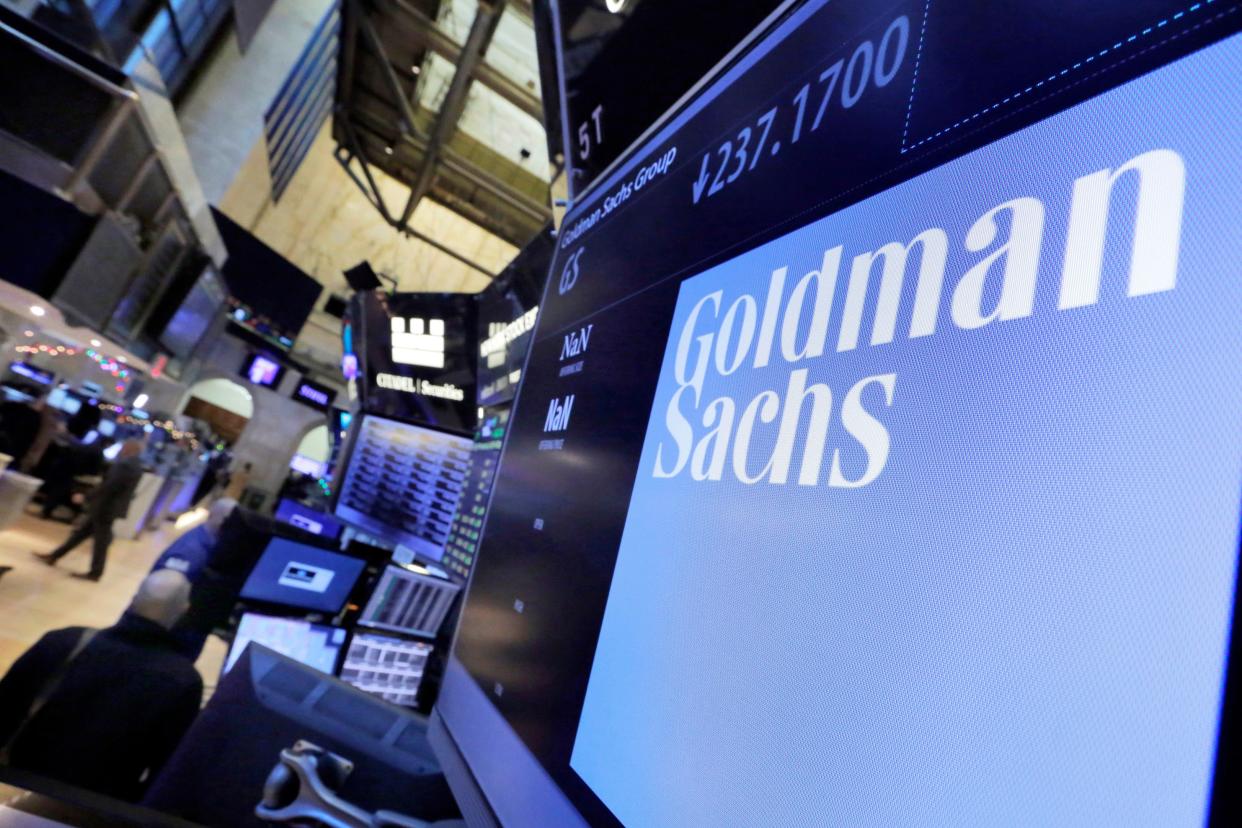Goldman Sachs raises junior-banker pay 30% after burnout, long-workweek complaints
Goldman Sachs has joined its Wall Street counterparts and will give its junior bankers hefty raises to counteract complaints of 95-hour workweeks.
The base pay does not include annual bonuses, which are keyed to employee and company performance.
The pay of first-year analysts, who are typically recent college grads, will rise from $86,000 per year to $110,000 base pay, reported Reuters. Second-year analysts will get a raise from $95,000 to $125,000, and first-year associates will get $150,000.

Goldman Sachs joins JPMorgan Chase & Co., Citigroup Inc. and Morgan Stanley in hiking pay for early-career bankers, which those institutions did earlier this summer, according to The Wall Street Journal. And Sachs now outpaces its rivals, though execs denied that they’d been influenced by the earlier moves.
“When appropriate, we make sure our salaries are competitive,” Goldman Chief Executive David Solomon said on a July call with analysts, The Wall Street Journal reported. “So we continue to thrive by having the best people here and paying them appropriately, especially when we perform. We’re performing.”
Several junior bankers had conducted an internal survey earlier this year asserting they were working on average 95 hours per week, and they complained of burnout and job stress’ effects on both physical and mental health.
One former banker frowned upon the notion, though. Xavier Rolet, a finance veteran who ran the London Stock Exchange for eight years, implied the up-and-coming generation was soft and said he used to work 130 hours per week, forgoing sleep to keep pace with trading in the world’s myriad time zones.
“We’d work the whole New York trading day in the office, have dinner on the desk then trade Asia and Tokyo from 8:00 p.m. until 10:00 p.m., go home during the half-day recess and trade the Tokyo afternoon session from home from 12:00 p.m. to 2:00 a.m.,” he wrote in a LinkedIn post cited by BBC News. “Grab some shut-eye until 4:00 a.m. to put our orders in the European markets in time for the opening… quick commute to 40 Wall to be in the office by 6:30 a.m. to continue to trade our European orders in time for the pre-opening in New York. Tokyo was open on Saturdays and half day every other Sunday in those days.”
Sleep was apparently for sissies, as he did this seven days a week. He later compared such workweeks to those of “single working mothers trying to put several kids through school.”
Breaking down the two sets of base salaries per hour, these bankers’ earnings might well be in the same ballpark as those of a single mother. The $86,000 annual wage comes down to a little over $17 an hour, assuming a 95-hour workweek. If the workweek is capped at 80 hours, as Goldman Sachs workers asked for back in March according to BBC News, the rate rises to about $20 hourly.
With the new pay of $125,000 to start, the hourly comes out to about $25 per hour with a 95-hour workweek, and $30 per hour with an 80-hour workweek.
On top of that would be bonuses, which could be sizable depending on the magnitude and volume of deals. Throughout the pandemic, with more than $2 trillion in deals worldwide during a record first half of 2021, the sector has soared, as CNBC reported.
Goldman also plans to enforce its so-called Saturday rule forbidding employees to work between 9 p.m. Friday and 9 a.m. Sunday unless special circumstances warrant, Reuters said, so that they will have least one guaranteed day off weekly.
“In this world of remote work, it feels like we have to be connected 24/7,” CEO David Solomon said, according to Reuters. “This is not easy, and we’re working hard to make it better.”
